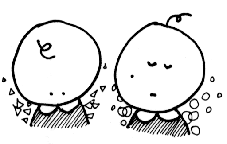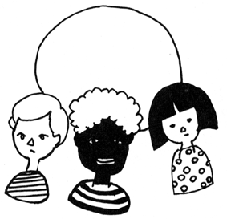|
By
Andrew Homer & Robert Hilke Have you ever been in a conversation with someone and not understood what she is saying? Perhaps she has asked you a question and you not sure what she means. How do you usually handle it? Let's assume that the problem isn't that you couldn't hear what she said--it's just that you can't really understand her--what do you do? Do you ask the person to repeat her question, or just smile and keep nodding and hope you'll figure out what she means as the conversation progresses? Robert Hilke, an American interculturalist and author who taught for many years at International Christian University, believes that your answer to this question may depend on whether or not you are a native English speaker. Basing his work on a theory put forth by the linguist John Hinds, which describes languages as being either reader-responsible or writer-responsible, Hilke contends that languages can also be described as listener-responsible or speaker-responsible. Imagine this situation: You are walking down a street in an unfamiliar part of town, trying to find a restaurant you've arranged to meet friends at. You know you're in the right area, but you just can't find it. Finally, out of frustration, you ask someone if he knows where the restaurant is, and he does. The only problem is, when he starts to give you directions, you have no idea where he is talking about. What do you do? If you're a native English speaker, chances are that you'd ask him to repeat himself. In fact, the question probably sounds strange to you--what else would you do? For native Japanese speakers though, the answer is not so clear cut, as many Japanese speakers might think it rude to directly ask a person to repeat herself in this type of situation. If a person does ask someone to repeat what she has said, it is done in an apologetic way, as if to suggest that he, the listener, is somehow to blame for not understanding what was said. This is what is referred to as listener-responsibility. The idea is simply that the listener has a big responsibility for understanding the message in any conversation, even when the message itself seems ambiguous or even, perhaps, unclear. This is not to say that Japanese never ask for clarification if they do not understand; however, it is also equally likely that the person asking for directions might continue to listen to the directions in the hope that eventually he would be able to understand those directions. Contrast this with the reaction of a native English speaker, who would almost certainly interrupt the speaker as soon as she realized she couldn't understand the directions. This is a natural response for users of speaker-responsible languages. English speakers will not hesitate to tell people when they can't understand something being said to them. In the same way, English speakers assume that unless they are told otherwise, their message has been understood by the listener. In fact they would be probably be surprised, and depending on the circumstances, maybe even angry, to find out that someone didn't understand what they were saying, yet didn't tell them. Ordinarily, the fact that some languages are listener-responsible and others speaker-responsible does not present a problem, since speakers of a certain language know instinctively which one their language is, given the cultural context in which it is used. The problem arises when speakers of a listener-responsible language (such as Japanese) try to speak a language that is speaker-responsible, or vice-versa. Let's use our restaurant example above to illustrate this. Imagine that the person looking for the restaurant is a Japanese speaker who is on vacation overseas. He asks someone for directions, and the passer-by proceeds to explain where he should go. For the most part, the Japanese speaker seems to respond appropriately during the conversation, listening carefully and nodding in the right places, leading the English speaker to assume that her message has gotten through. The Japanese speaker however, cannot understand the directions, and ends up having to ask someone again. Why? Because he subconsciously believes that he is responsible for understanding the message, even when he isn't. On the other hand, the first person he spoke to would probably be surprised to find out he didn't understand her directions, asking "Why didn't he just say so?" Hilke's advice, then, for Japanese people speaking English is to never feel reluctant to ask people to repeat themselves. In fact, it's just the opposite; you should make it a point to ask for clarification when you aren't sure, since you aren't a native speaker. Keep in mind that native English speakers will assume that you understand something completely if you do not specifically indicate that you do not. Thus, you should never feel the need to apologize or feel ashamed when you don't immediately grasp the message, since it is the speaker's duty to communicate the message successfully to you. All you have to do so is say, "Excuse me but..."
About the Author: Andrew Homer is a corporate training manager at INTEC Japan, Inc., an international training and consultancy company in Iidabshi, Tokyo. In addition to working as a cross-cultural and business trainer, Andrew has written articles for several publications in Japan on communication and cultural issues. Robert Hilke, Senior Consultant at INTEC Japan, is an American interculturalist who conducts corporate training for many leading corporations, including Toyota, NEC, Canon, Sankyo, and NTT, among others. He taught at International Christian University for many years before retiring to take focus on training through INTEC Japan. Mr. Hilke has written more than 50 books related to TOEIC, TOEFL, and GRE and has authored a number of academic articles.
|




